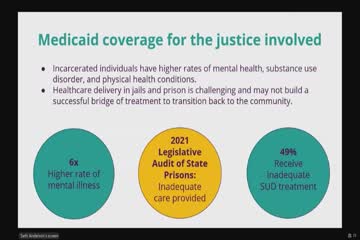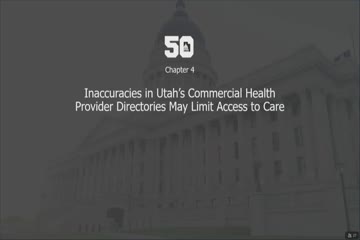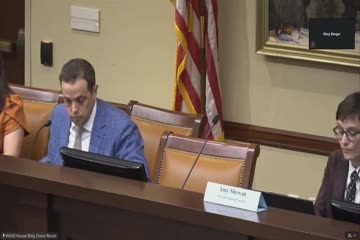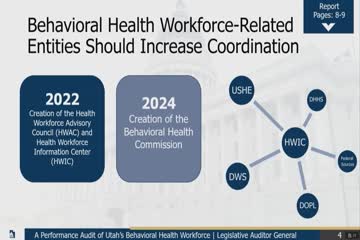Article not found
This article is no longer available. But don't worry—we've gathered other articles that discuss the same topic.

Medicaid director briefs committee on program scale, justice‑setting coverage pilot and proposed work requirements for adult expansion

Legislative auditors find fragmented behavioral health governance, workforce shortages and inaccurate provider directories; committee opens bill file on ‘ghost’

Health committee adopts interim study list; adds review of toxins in feminine hygiene products and senior food insecurity

